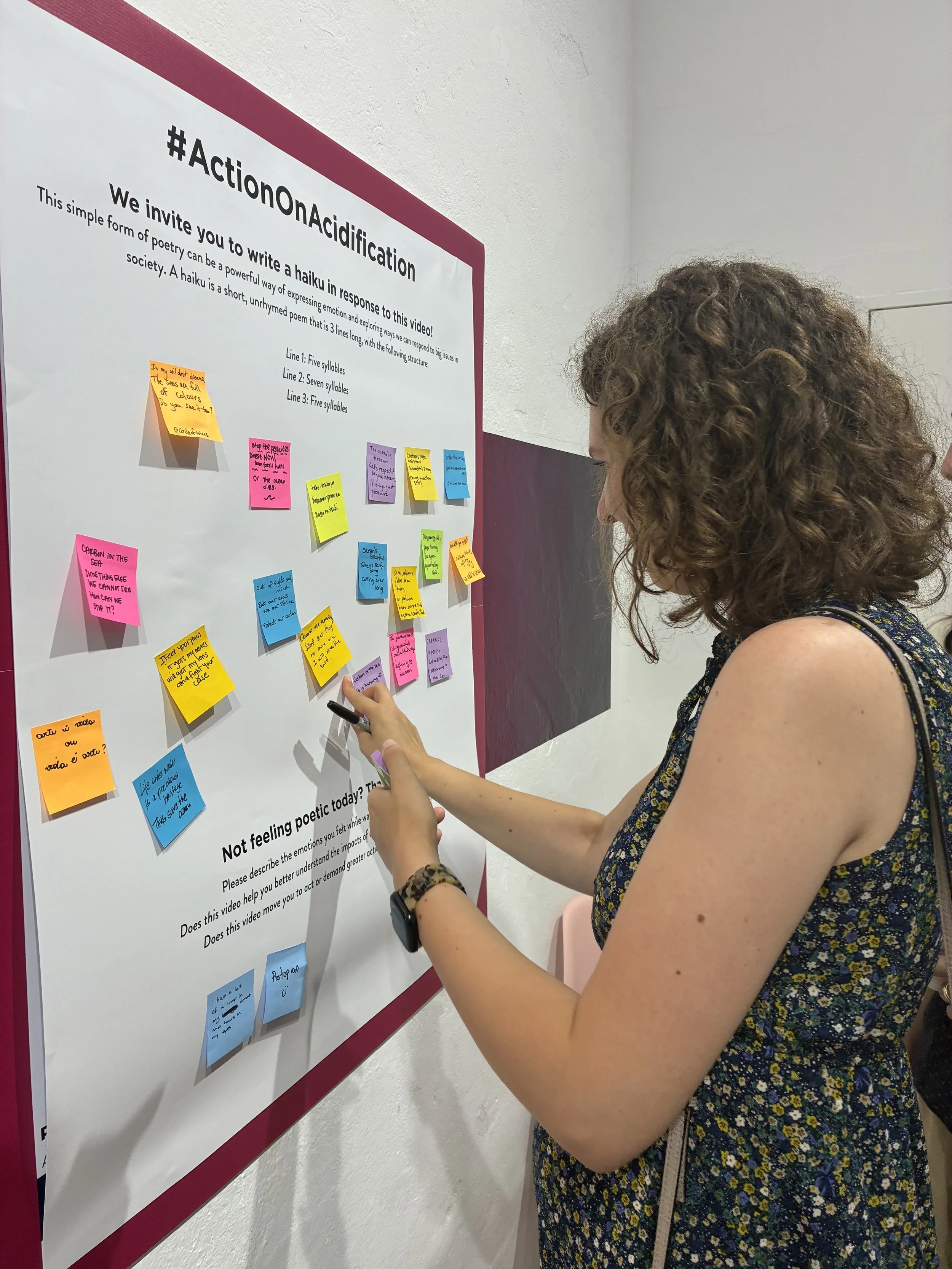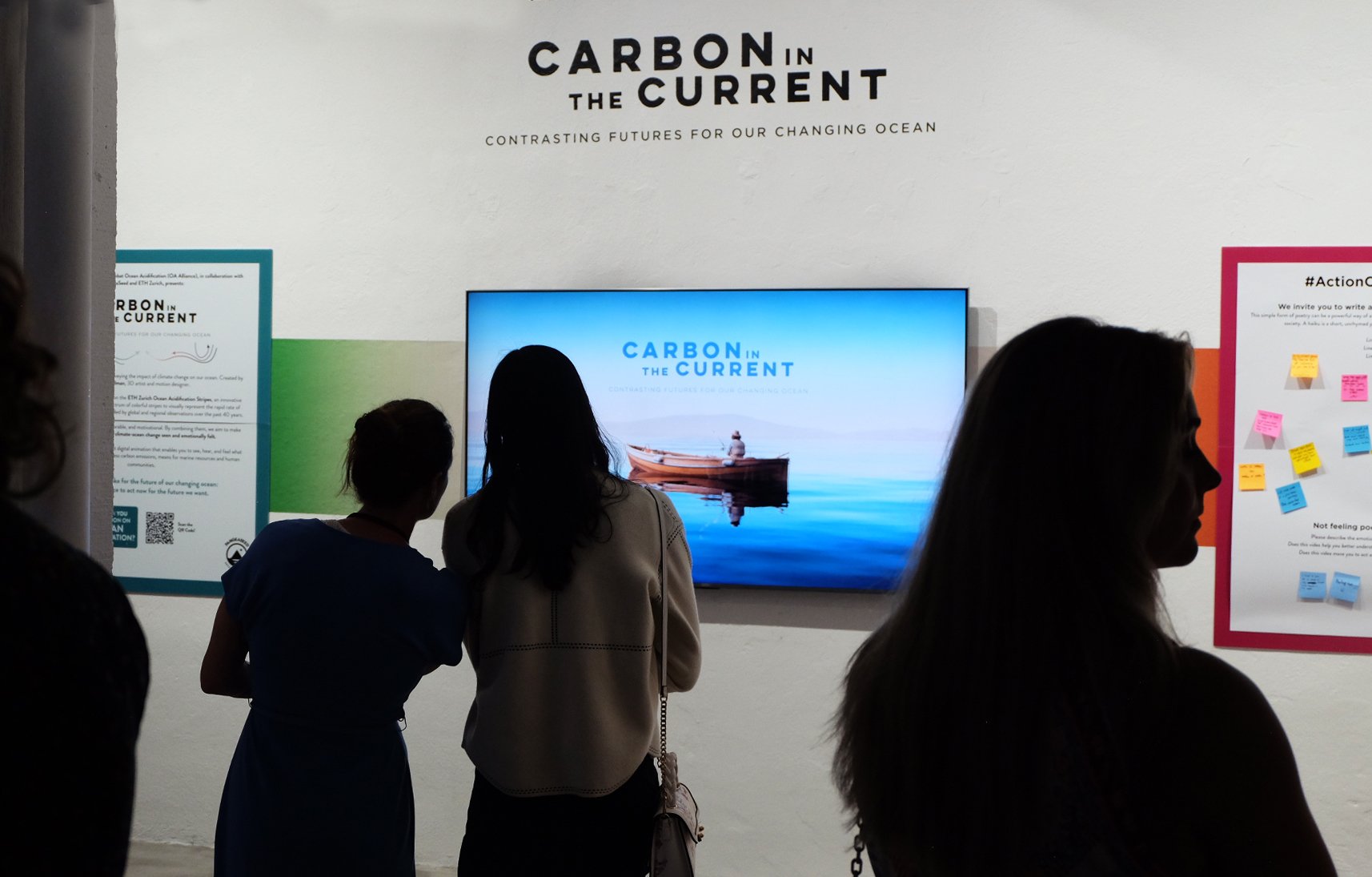
Creative Communications
Creative Communications
Making the unseen impacts of climate-ocean change seen and emotionally felt
We underpin our science and policy work with creative communications projects that offer new and needed ways to increase awareness and visibility of ocean acidification and generate support for ambitious response.
Social-psychological research shows that simply generating knowledge and awareness toward protecting the environment—including the ocean—very rarely produces behavior change. Our projects are designed to appeal to the emotional resonance of OA and climate-ocean issues, which are more likely to engage our constituencies in new behavior.
Time is of the essence. Science tells us that we’ve reached a critical point in our fight against climate-ocean change. The OA Alliance has been at the forefront connecting OA science to policy action.
We know urgent action is needed to combat ocean acidification and traditional ocean literacy efforts are only taking us so far. Projects under this programme are expanding the reach of our messages and complementing existing policy efforts.
Our objectives
Clearly communicate ocean acidification and explain it within the context of climate change and its multiple impacts, including ocean warming and oxygen loss.
Clearly communicate that climate-ocean impacts are affecting people globally and locally.
Turn OA knowledge into action by showcasing the many opportunities for mitigation, preparedness, and response happening within our network.
why?
-
Most people do not understand that the ocean is the Earth’s climate regulator and functions as the largest carbon sink and heat absorber. Most larger ocean NGOs, and most climate-ocean policy makers, do not understand the direct impact of CO2 and GHG emissions on our ocean, or the consequences for ecosystems, species and human communities.
-
70% of all OA knowledge is currently produced in North America and European countries, demonstrating a huge equity gap when it comes to taking effective action.
-
The OA Alliance unites a network of government and non-government members who are committed to take climate-ocean action, including tangible ocean acidification projects. We want to provide a platform to showcase their work to inspire understanding, emotional resonance, and change.
-
The correlation between knowledge and behavior change is demonstrably surprisingly low. Social-psychological research shows that simply generating knowledge and awareness toward protecting the environment—including the ocean—very rarely produces behavior change.
-
UN Sustainable Development Goal 14 (Life Below Water) is the least funded Sustainable Development Goal, which shows a lack of relevance and urgency. We must draw attention to SDG target 14.3 “to minimize and reduce the effects of ocean acidification” along with the policy and funding ambition needed to achieve it.
connect
If you’re interested to know about our work, see the projects we have implemented here!
Do you want to collaborate or create something together?
Contact our Communications Lead: jcorrales@unfoundation.org


